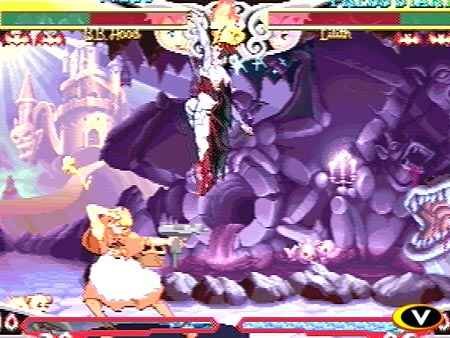Darkstalkers creator on breaking into the industry
Comic-Con 2010: 19-year vet Alex Jimenez offers his advice to aspiring game designers, artists, and programmers for getting a job.
Who was there: The "Still More Dirty Secrets of the Video Game Industry" panel was hosted by Alex Jimenez, a 19-year industry veteran specializing in design. He has worked for companies ranging from big-time publishers like Capcom, to his current outfit, Seed Studio, which specializes in small-scale game projects. He is perhaps most notable for his role in creating the Darkstalkers franchise at Capcom.

What he talked about: Jimenez began his talk by giving those in attendance at this year's Comic-Con a stern warning that the path of game development is rough, one that folks should probably avoid at all costs. However, for those not faint of heart, he offered a few tips and tricks that might make breaking in a bit easier.
For designers, he said the important thing to keep in mind is that entry-level staff are hired not to make their own games, but to help established designers work on their projects. He likened this process to being a screenwriter, where pitching a game to a studio is like pitching a script to Steven Spielberg. In fact, he recommends that designers not even pitch their own game design in an interview.
Instead, he said, it's important for designers to show some examples of what they know or what they can bring to the job. This is best accomplished through a mod that a player has built, or simply a portfolio of articles, blog posts, or published stories that indicate a designer's ability to work on a project. He also emphasized that the work of a designer is often tedious, because they must sweat all the minuscule details in a project--everything from the opening scene to the end credits.
He also noted that it is often helpful for a designer to be accomplished in a second field, such as programming or art. After all, he said, the most important thing he considers when making a hire is whether or not the individual is flexible.
While important for all roles, flexibility is especially useful for artists. He said that an artist who is particularly skilled at, for instance, modeling, should also have working knowledge of texturing or animation. That way, he said, he is able to make the most of his resources when a particular area of a project needs assistance.
As for what artists should bring to a job interview, he said it is important to present a portfolio showcasing a variety of different skills. For instance, just showing a lengthy, expertly rendered spaceship sequence isn't as compelling as a number of short clips showing a variety of different surfaces and animations, from people to plants to buildings to water. He also said that he wants artists to bring a sketchbook, and simply having a disc on hand isn't the best way to convey ability.
As for programmers, he said that learning the C++ language is vital. He also said that, especially for those coming from other fields, being able to show talent in a variety of different languages and explain one's history of programming makes a positive impression. Also, there will be a programming test, so attempting to fake the knowledge is a good way to get laughed out the door.
Quote: "I feel a moral responsibility to save you from this fate."--Alex Jimenez, to those considering making games for a living.
Takeaway: Jimenez's key point--the big, dirty secret--seems to be that game-industry employees just need to be flexible to succeed. Being accomplished in one area and adept at a handful of other things dramatically increases a job applicant's likelihood of being hired, and being able to diversify is a good way to succeed. Being willing to work hard doesn't hurt, either.
Got a news tip or want to contact us directly? Email news@gamespot.com
Join the conversation